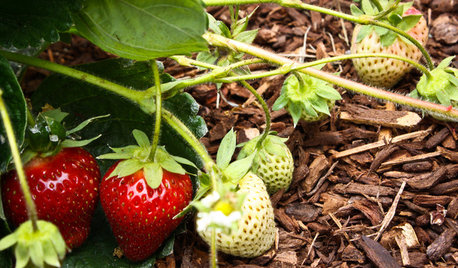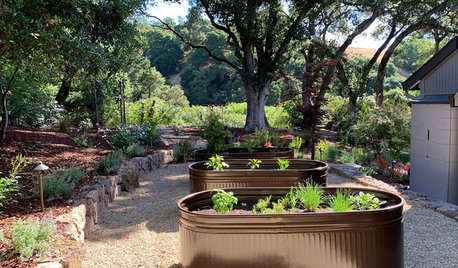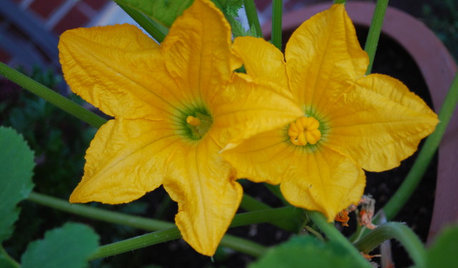Your best tips for potato growing success?
elisa_z5
9 years ago
Related Stories

COOL-SEASON CROPSCool-Season Vegetables: How to Grow Potatoes
This ever-popular tuber is a stalwart in spring and fall gardens and a staple in kitchens everywhere
Full Story
FARM YOUR YARDHow to Grow Vegetables in Containers
Get glorious vegetables and fruits on your patio with a pro’s guidance — including his personal recipe for potting mix
Full Story
FURNITURE10 Secrets of Successful Secondhand Furniture Shopping
Design professionals offer tips on how, where and what to buy
Full Story
SPRING GARDENINGSummer Crops: How to Grow Strawberries
Pluck your own sweet strawberries right from the garden vine for smoothies, salads or eating then and there
Full Story
FARM YOUR YARD6 Things to Know Before You Start Growing Your Own Food
It takes time and practice, but growing edibles in the suburbs or city is possible with smart prep and patience
Full Story
EDIBLE GARDENSHow to Grow Your Own Sweet Summer Crops
This guide will help any gardener get started on growing the freshest warm-season veggies and berries for summer
Full Story
SPRING GARDENINGHow to Grow a Rose Garden in Pots
Everything can come up roses, even without a plot of soil in sight. This step-by-step guide to growing roses in containers shows you how
Full Story
EDIBLE GARDENSSummer Crops: How to Grow Squash
Almost foolproof and with cheerful flowers, squash comes in a wide range of varieties to plant in spring
Full Story
EDIBLE GARDENSSummer Crops: How to Grow Tomatoes
Plant tomato seedlings in spring for one of the best tastes of summer, fresh from your backyard
Full Story
SALVAGEDIY: Secrets of Successful Upcycling
Learn how to find and customize salvaged pieces and materials to create one-of-a-kind furniture and accessories you love
Full StorySponsored
Columbus Area's Luxury Design Build Firm | 17x Best of Houzz Winner!
More Discussions








wayne_5 zone 6a Central Indiana
Slimy_Okra
Related Professionals
Danbury Landscape Architects & Landscape Designers · Manorville Landscape Architects & Landscape Designers · Towson Landscape Architects & Landscape Designers · McKinney Landscape Contractors · Stoughton Landscape Contractors · Galveston Landscape Contractors · Holtsville Landscape Contractors · New Berlin Landscape Contractors · Saint George Landscape Contractors · San Antonio Landscape Contractors · West Haverstraw Landscape Contractors · Irvington Landscape Contractors · Park Ridge Driveway Installation & Maintenance · Round Lake Beach Driveway Installation & Maintenance · Rochester Hills Driveway Installation & Maintenanceltilton
elisa_z5Original Author
pnbrown
mdfarmer
wayne_5 zone 6a Central Indiana
ltilton
gardenmom
galinas
tracydr